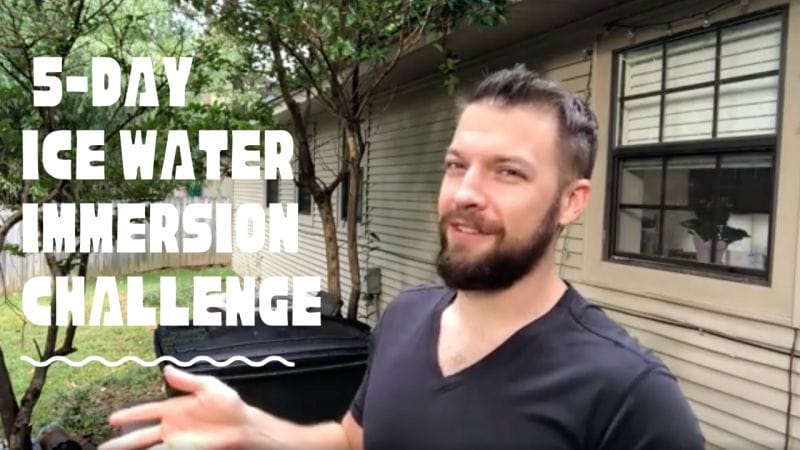I’ll be submerging myself in ice water each day for the next five days.
Why?
Theres a plethora of physical and mental health benefits tied to cold therapy. *I’ve always wanted to use the word “plethora” in a blog post.
People like Wim Hoff have spread the practice of exposing the body to extreme cold in order to encourage improved body and brain function. In 2017, I had done some experiments with cold showers and even though I love/hated it, I felt great after each shower. But I never went beyond that.
This time, I’m going all the way. I want to know what happens when you shock your system with cold on a regular basis. Is it hype? Is it dangerous? Will it make me feel and perform like superman? or, at least *Batman on steroids? Let’s find out.
The Rules:
- The water must be below 59° F every time.
- Full submersion. The head must go under at some point.
- Stay in the water for no less than five minutes.
- The Submersion must happen first thing in the morning.
- Do this for five consecutive days.
I’ll post something new from the experience each day. Tune in. Get cold. Have fun.
*Just kidding. Everyone knows Batman is already on that jungle juice.
——–
Some Benefits of cold water therapy:
While cold therapy has been an accepted treatment for acute injuries and post-exercise recovery for over 30 years, new research is showing that cold therapy is safe and effective for chronic diseases and general well-being.
Cold therapy provides systemic anti-inflammatory relief, increases positive immune response, and parasympathetic nervous system stimulation. Cold therapy is being applied to provide non-pharmaceutical support for patients with depression and mood disorders, reduction of daily stress and general well-being, chronic disease support including rheumatoid arthritis and fibromyalgia among others, and disease intervention.
Cold therapy has been shown to reduce depression, anxiety, and stress as well as improving mood and general brain function(Galliera et al., 2013; Hayashi et al., 1997; Jungmann et al., 2018; Kinoshita et al., 2006; Lange et al., 2008; Metzger et al., 2000; Misiak & Kiejna, 2012; Polizzi, 2019; Rymaszewska et al., 2020).
The brain releases norepinephrine during cold stress, which is shown to reduce depression and anxiety. Heart rate and heart rate variability are linked to reductions in stress as well, with reductions in heart rate and heart rate variability occurring with cold therapy. Mood and brain function improve through stimulation of the parasympathetic nervous system.





